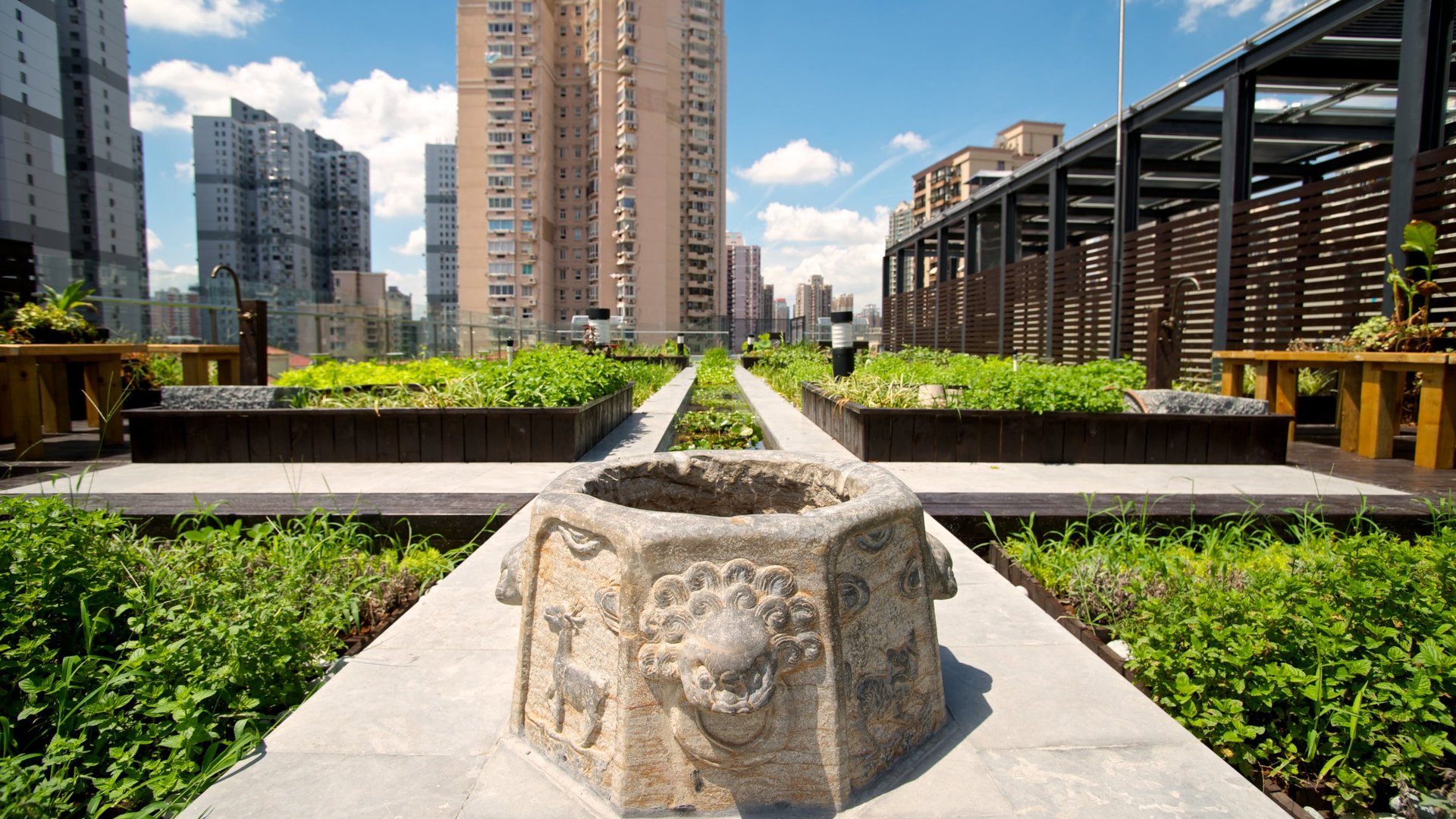The Shanghai startup that takes to the sky
Using technology to build out markets in an environmentally friendly fashion: that’s the goal of Shanghai startup V-Roof and its founder, Huang Ke. Thanks to an initial 1 million yuan ($163,000) investment, V-Roof’s small staff has installed nearly 2,000 square meters of green space–dubbed V-gardens–in high-tech industrial zones, office blocks, and residential compounds around Shanghai. Now, Huang Ke and her team are ready to take the next step and expand operations.


Using technology to build out markets in an environmentally friendly fashion: that’s the goal of Shanghai startup V-Roof and its founder, Huang Ke. Thanks to an initial 1 million yuan ($163,000) investment, V-Roof’s small staff has installed nearly 2,000 square meters of green space–dubbed V-gardens–in high-tech industrial zones, office blocks, and residential compounds around Shanghai. Now, Huang Ke and her team are ready to take the next step and expand operations.
Quartz Bulletin: How would you describe V-Roof’s mission?
Huang Ke: V-Roof’s operations and business model is based on providing a suite of services: consulting, designing, construction of rooftop V-gardens, and upkeep and maintenance. We plan to achieve surplus by building rooftop gardens one-by-one.
QB: What were some the biggest challenges in starting your business?
HK: There were some rather big challenges. One was getting permission to use the rooftops. I had to answer many questions and allay a number of concerns, especially regarding fire safety. I also had to determine whether the roof was privately owned and how to obtain permission to use or rent it. Calculating the bearing capacities of the rooftops and creating the design accordingly was another challenge. And the technologies used in rooftop vegetable gardens are quite different from those used in other types of urban farming. And then there was the challenge that stemmed from consumers’ concerns about food security, given the air pollution [in Shanghai].
QB: Did you have any difficulty obtaining investment or financing, and, if so, how did you work around those issues?
HK: There are certainly many difficulties in securing investment. I have been approached by a couple of venture philanthropy funds and social investors. To address [questions about our business model], we intend to target more end-users by developing standard toolkits with containers and seedlings for a 10 square-meter balcony garden, which we will sell to urban residents who want to grow plants on their rooftops or balconies.
QB: Have you collaborated with other Chinese small businesses? If so, how have they helped you grow?
HK: I have worked very closely with garden supply companies that sell containers and seedling. Since V-Roof offers a design service, we can connect all the different types of companies that cater to the urban gardening and farming. We are integrating our offers and I hope that in the near future, the container and seedling companies will become part of [our] supply chain.
QB: Your company’s portfolio is rapidly expanding. What’s the next step for V-Roof?
HK: Starting this year, we are focusing on the following business priorities. The first is enhancing our revenue by designing and selling urban farming toolkits for the general public and promoting urban farming in China. The second is to hire more staff who can provide training and maintenance and build a supply chain for seedlings, organic fertilizer, etc. The third is building rooftop gardens that are independently operated and managed by V-Roof and can serve as an exhibition center and interactive space for urban farming. We also aim to expand V-roof to other cities in China, including Beijing, Hangzhou, and Shenzhen, through joint projects and franchising.
This article was produced on behalf of Cathay Pacific by the Quartz marketing team and not by the Quartz editorial staff.